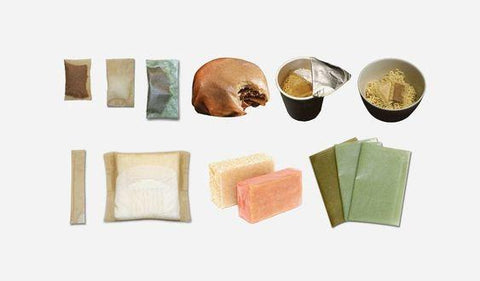
2020 begins a pivotal decade for the planet and for our future.
Global temperatures continue to rise, species head toward extinction, plastic contaminates our environment, and droughts, wildfires, and super hurricanes sweep their way across the landscape. If you have been waiting for that perfect opportunity to adopt habits that are healthier for the planet, now is the time. Here are 5 New Year’s resolutions to kickstart a decade of positive action on climate and pollution.

1. Fly less
If you’re flying, you’re adding a significant amount of planet-warming gases to the atmosphere — there’s no way around it. To put that in scale, one round-trip flight between New York and California, generates about 20 percent of the greenhouse gases that your car emits over an entire year. If you are looking to reduce your carbon emissions, fly less. “No fly” movements have been sweeping across the planet, spearheaded by Greta Thunberg. For necessary air travel in 2020, airlines are making it easier for customers to purchase offsets along with tickets.

2. Eat more plants
The livestock industry emits as much carbon as the world’s entire transport sector. The 2019 report of The Lancet Countdown on health and climate change states that projections for our future show that “vegan and vegetarian diets were associated with the greatest reductions in greenhouse-gas emissions."
Eating primarily plants is better for the environment AND the human body. The Lancet report estimates that eating more plants and fewer animal products would prevent 10.9 to 11.6 million premature deaths caused each year by heart disease, diabetes, and other chronic conditions.
Feel free to dive fully into the veggie lifestyle, or reduce your consumption of animal products gradually. Every bite makes a difference.

3. Ditch single use plastic
According to the EPA, the average American creates about 4.4 pounds of trash per day. How much is recycled or composted? About 1.5 pounds. That means 66% of our trash goes to the landfill (or worse). 2020 rings in the year of plastic-free living with established and more easily accessible alternatives to plastic. Zerowaste shops are popping up across the country, inventive solutions are reaching scale for plastic-free home & beauty products, and the effects of our excessive waste are no longer an afterthought.
My simple steps to adopting a plastic free lifestyle:
- Evaluate your shopping routine: There is no one uniform way for the world to go plastic free because we all have our unique lifestyles. The first step is to evaluate what you are consistently buying that is wrapped in plastic: baby carrots, packaged rice, salad greens, toothpaste, toilet paper, etc.
- Discover easy alternatives: Plastic free solutions for your daily habits are just one google search away. There are a plethora of resources online to remove plastic from every area of your life.
- Change your habits: This is arguably the most difficult step. Old habits are ingrained in our muscle memory. Using plastic is almost always easiest. At first, change requires mindfulness and dedication. Soon this new, earth-friendly way of living will be the new normal.

4. Thrift more, shop less
Fashion is one of the most polluting industries of our world. Just one kilogram of fabric generates 23 kilograms of greenhouse gases (via The Wall Street Journal, 2019). Consumers today buy 60% more clothing than they did 15 years ago, but keep the items only half as long. Want a simple solution to reducing your climate impact all while keeping stylish? Go thrifting! For more tips on thrift shopping, check out our blog post on "How to Not Buy New Clothing."

5. Reduce Food Waste
The policy director of the climate solutions group Project Drawdown, Chad Frischmann, argues that reducing food waste is “one of the most important things we can do to reverse global warming.” In the US, up to 40% of all food produced goes uneaten. To grow food that goes uneaten wastes 21% of our freshwater, 19% of our fertilizer, 18% of our cropland, and 21% of our landfill volume (NRDC). The detrimental impact of food waste does not stop there. Decomposing food waste produces methane - a potent greenhouse gas with 28-36 times the global warming potential of carbon dioxide (IPCC). Check out our 5 creative ideas for getting conscious in the kitchen, link here.

Be encouraged - we have not lost the battle on climate change. There is clear global momentum around climate change that continues to build. Six in 10 Americans are now either “alarmed" or “concerned” about climate change, a number that has more than doubled in the past five years. I look forward to seeing the environmental strides we as individuals, AND we as a collective achieve in 2020.
Pulp Pantry would love to hear about your 2020 goals to show love to momma earth. Tag us on social (@pulppantry) to inspire us, and others in your efforts.





